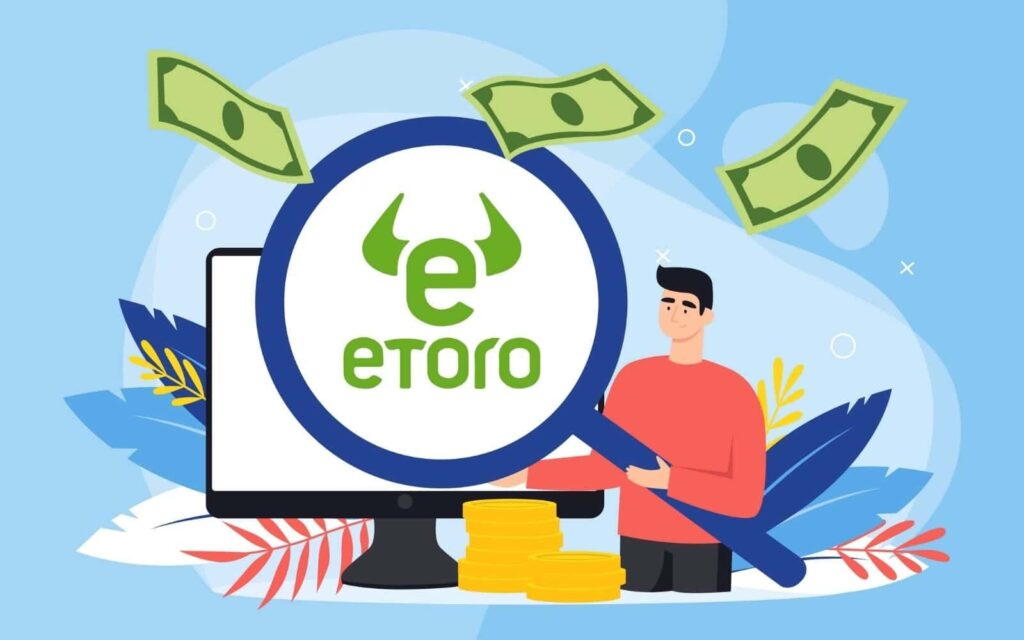Disclosure: This post may contain affiliate links. If you click on a link I may make a small commission at no extra cost to you. You can read the full disclosure here.
Last Updated on April 23, 2023 by Chris Panteli
Income Generating Assets
You’ve probably heard people say that you shouldn’t rely on just one source of income. How will you pay your bills this month if you lose your job tomorrow?
By having multiple sources of income, you take that stress off yourself and create a safety net should you lose your job or need to stop working.
But how do you create multiple sources of income without spending every waking hour working and hustling?
In this guide, we’ll show you 11 of the best income-generating assets to buy so you can create passive income, build real wealth, and gain financial freedom.
If you don’t have the funds to invest in real estate, you can invest in digital real estate for a fraction of the price and still make a ton of cash – click here to find out how.
- Income Generating Assets
- What Are Income-Producing Assets?
- Reasons to Purchase Income-Generating Assets
- Getting Started with Income-Generating Assets
- Which Are The Best Assets to Invest In?
- Which Are The Best Assets To Buy?
- Income Producing Assets And Taxes
- How Much Money Can an Investment Asset Make?
- Looking for Ways to Make Money?
- Income Generating Assets
What Are Income-Producing Assets?
When we talk about investing, there are two different types of investors. The first type is appreciation investors, who invest money for long-term growth. The second type is income investors, looking to make money more quickly.
Income investing involves building a portfolio of income-generating assets that generate cash on a regular basis.
But what are income-generating assets? The most common types are dividend stocks, bonds, and real estate, but we’ll look at some others in detail later.
Reasons to Purchase Income-Generating Assets

There are a few key reasons why you would purchase income-generating assets over other types of investments.
- Regular Cash Flow
If you’re looking to make money almost passively, income-generating assets produce regular cash flow. During challenging economic times, this can help boost your usual income and provide a steady source of income during uncertainty.
- Financial Independence
This is the goal of most investors. By making your money work for you, you don’t have to rely on exchanging your time for money with one income stream in order to live.
By having assets bringing in money every month, you have the freedom to work on creative projects or spend time with your family without the worry of whether your next paycheck will cover your expenses.
- Boosted Net Worth
Having income-generating assets strengthens your financial position, meaning you’re more likely to secure loans, a mortgage, and lines of credit with banks and lenders.
You’ll find most successful investors have most of their money tied up in property, stocks, and other income-generating assets, all of which contribute to their net worth.
- A Better Lifestyle
Nobody wants to work their entire life, but when you’re reliant on your paycheck, you have no choice but to work for a living.
By building a portfolio of assets, you can create a better lifestyle that focuses on things you love. Wouldn’t it be great knowing that you can go on vacations every year using the money generated from your investments?
- Generational Wealth
If you’ve got kids and want to leave them money when you pass, investing is a must. By building your portfolio now, you’re building a legacy to pass down to your kids, so they can have a better future.
If you’ve worked hard all your life, it’s nice to know that you have something to leave to your kids and the future generations coming after you.
Getting Started with Income-Generating Assets
That all sounds great, but how do you actually get started? If you don’t have hundreds of thousands to invest, you can still begin to build a portfolio with some planning.
Figure out Your Budget
Start by figuring out how much you can invest. If you have any debt to your name, work on paying that off before you start investing any money.
If you don’t already have a monthly budget, sit down and work out how much money you spend every month and how much income you bring in. If you don’t have any money spare each month, it’s time to cut your budget or raise your income – you can’t start investing if you don’t have money spare.
The easiest way to increase your income is to ask for a raise. If you’ve been at your job for a while, put together a decent proposal and speak to your boss about a percentage increase – make sure you have reasons to back up your request.
Make a Plan
Once you’ve figured out how much money you have to put towards your investment portfolio, make a plan of what you’d like to invest in.
Your budget will dictate what you can look at first. For example, if you have a few hundred dollars to invest, stocks are going to be more accessible than buying property.
But we’ll look at the best types of assets to invest in later. For now, think about the type of investments you’re interested in and make a list of the assets you’ll research.
Speak to a Financial Adviser
If you’re new to investing, it’s always best to get advice from a financial adviser. They can look at your budget and financial goals and help you figure out the best plan of action.
Which Are The Best Assets to Invest In?
Let’s take a look at some of the best income-producing assets to invest in, so you can figure out what will work best for your portfolio.
Real Estate

Real estate investment has been one of the most popular ways to generate income for decades. There are several ways to invest in real estate, but the four most common are:
- Buy-to-Let – real estate investors buy a property and then rent it out to a single person or family.
- House of Multiple Occupancy (HMO) – buying a property and dividing it into multiple units or renting individual rooms.
- Flipping properties – buying cheap properties, investing money in renovations, and then selling them on for a profit.
- Rent-To-Rent strategy – sub-letting a property you don’t own to make a profit.
Although real estate can be a lucrative way to make extra money, it does include a lot of extra costs, including mortgage interest, taxes, maintenance, insurance, agency fees, legal fees, etc.
To become a real estate investor, you’ve got to have a fairly substantial deposit saved up in order to buy a property to flip or rent out.
The benefit is that rental income is far more consistent than dividend income. You could lose all your money on the stock market, but you’re almost guaranteed to generate rental income from a property.
How to Get Started
Save up for a deposit and look for a property in a desirable neighborhood. The idea is to get as much funding from the bank as possible to save your own money, so research the best mortgages and deals before settling.
Index Funds
Next up, we have index funds, which involve investing in the stock market. If you want to create long-term wealth, this is a great option.
Index funds track an index (a list of companies) over time in order to buy and sell stocks. Having a diversified index reduces the risk of having all of your money invested in one company and increases your chances of higher returns.
Income comes from the dividends you receive when the stocks do well, which are then reinvested, giving a compound effect over time.
If you don’t already have money in stocks, this is a great place to start. You can get started with as little as £50 a month, and there are tons of apps that make it easy to get started – even if you are unfamiliar with the stock market.
How to Get Started
Figure out how much you can invest each month and the level of risk you’re willing to take. Higher-risk investments can give substantial returns, but you’re also opening yourself up to substantial losses.
Open an account with an investing app such as Betterment, Investr, or eToro and get started with just a couple of bucks.
Start slow and learn all you can about the market before investing more heavily. Remember, the stock market is about the long game, so you’ve got to be willing to withstand dips in the market.
Mutual Funds & Stocks

An index fund invests in a specific list of securities (such as stocks), whereas a mutual fund invests in a changing list of securities chosen by an investment manager. You’ll pool your money with other investors in order to invest more in a mutual fund.
Stocks, on the other hand, are single shares in a specific company.
Mutual funds are riskier and more expensive than index funds, but the payouts tend to be higher. If you have a higher appetite for risk and you’re looking to outperform the market, investing in mutual funds might be a better option for you.
If you have a specific company you want to bet on, you can also invest in shares of that company. Although this can be a risky strategy, it can be hugely beneficial if you get in early and the company does well.
How to Get Started
Figure out how much you’re willing to invest first. Most mutual funds have minimums from $100 to $3000+, so it’s important to know your budget.
You’ll then need to find an online brokerage with a mutual fund you’re interested in – Vanguard and BlackRock are two popular choices.
Cryptocurrency

As the economy becomes more and more unstable, people are looking for decentralized ways of storing wealth (that is, not managed by the banks!).
A cryptocurrency is a decentralized form of currency that works as a medium of exchange. You’ve probably heard of Bitcoin, which reached a record-high price of $69,000 back in November of 2021.
However, crypto had a slow decline in value through 2022, so it’s a volatile market to invest in.
If you’ve never invested in crypto before, you need to do your research. It’s a tough market that changes quickly, so you need to be fast when buying and selling stocks.
How to Get Started
You can purchase crypto through crypto exchanges like CoinBase or Stash. But start low and only invest up to 5% of your cash into this market. Many investors will still agree there is merit in investing in crypto, but there are far less risky strategies for beginners.
Peer-to-Peer Lending
So far, we’ve talked about digital and physical assets that can produce income for you. But this next strategy involves you becoming the creditor and lending money to others.
The passive part of this strategy is the interest you make on the money owed over a specific term.
Obviously, this strategy can carry significant risk since you’re relying on the debtor to pay you back with interest. However, it can be a passive income stream if you have the money spare to lend.
When using P2P lending platforms, your money isn’t secured by any government or regulatory entities, so you run the risk of losing your capital if the debtor defaults. However, some sites have ways of securing debt to give you some recourse if this happens.
How to Get Started
Find a good P2P lending platform with a great track record. Make sure you do your research, so you’re happy with the platform you choose.
Put your money into your account and set the interest rate you’re looking to get, and then you can start looking at potential investment opportunities.
Some great P2P sites are Blend Network, Funding Circle, and Prosper.
Online Business
Perhaps the most lucrative income-producing asset is starting your own online business. This is far from passive, but the sky is the limit when it comes to returns, and you can choose something you’re really passionate about.
You can devote as much or as little time as you want to set up an online business, and it costs almost nothing to get started. From selling digital products on Etsy to offering services on freelancer sites, you can get started today and have your first sale by tomorrow with the right product and strategy.
How to Get Started
Figure out what sort of business you’d love to run, and then start by doing some market research. Who is already doing well in that space? What can you learn from their setup?
For online services such as copywriting, voiceovers, graphic design, and virtual assistance, you can get started on Freelancer sites such as PeoplePerHour and Fiverr.
If you love the idea of selling products, you can start an online shop for free on Etsy to get your idea off the ground.
Savings Account

If you categorize yourself as risk averse, a savings account might be a good option for you. With interest rates rising globally, this is a good option to explore.
With a long-term savings account, you lock your money in with a specific bank, and they pay you a fixed return each month.
The best rates in the US right now are around 5%, but you need to compare your potential returns to inflation to see if this type of investment actually makes sense.
How to Get Started
Figure out how much you can use as an initial deposit and then how much you can add each month. Most savings accounts have minimum upfront deposits.
Next, compare savings accounts to find the best rates – compare these to inflation rates to make sure this investment option aligns with your goals.
REITs
A Real Estate Investment Trust (REIT) allows you to invest in property without owning a physical unit. They are similar to EFTs since they are traded on the stock exchange.
With a REIT, you invest in a company which then invests in, owns, and manages property assets.
REITs must distribute over 90% of their earnings to shareholders, so the money you make comes from dividends.
The downside is that REITs tend to have higher fees than your standard stocks and funds, so you’ll need to pay more to play.
How to Get Started
REITs are traded on the stock exchange, so you can get started with these like you would index funds and stocks.
Open a brokerage account on your chosen platform, and research the best REITs to invest in. Some of the best platforms for investing in REITs are FundRise, DiversyFund, and RoofStock.
Farmland

This one is a bit of a curveball, but one of the best income-generating assets. Farmland suffers from far less volatility than that other investment types and has a low correlation with the stock market. After all, we always need farmland for food.
Demand for farmland has remained pretty consistent throughout history, so it’s a solid bet if you’re looking for a secure investment.
You do have the option of investing in farmland using a REIT, which allows you to invest in the land without actually owning it. If this sounds like a good option for you, skip back to the section on REITs.
The other option is to invest in farmland near you and then lease it to local farmers and farming companies. This can be a lucrative, consistent income producing asset if you can find the right piece of land.
How to Get Started
Do some research in your area and figure out if there is any viable land for sale. You can consult with a commercial real estate agent if you want some expert advice.
Once you’ve got the land, you now need to advertise it for rent. Again, a commercial real estate agent will be able to help you find suitable tenants to move onto the land to begin producing income.
Websites
If you have any experience with graphic design, you could make a lot of extra cash by creating and selling websites. Web design is a sought-after skill, and companies will pay a lot of money for a well-designed website.
Using sites like Flippa, you can create and flip domains, websites, and other digital real estate. Since it has a massive built-in audience of willing buyers, optimized websites in a range of niches sell fast.
The better the website, the more you’ll make – some websites listed on Flippa have bids well over $80K.
The other option is to build a website and make money through ads. Find a niche you love writing about and build your SEO to get as much traffic as possible to your website. If you can get 500K monthly views, you can make around $5K a month from ad revenue alone.
How to Get Started
Figure out which niche you want to create a website for. Some market research is key to picking a popular niche – the more popular the niche, the more money you make with ads.
Sign up for a web-building platform like Squarespace or WordPress and get building! Once you’ve got a basic website set up, load it with SEO-optimized content to start bringing in traffic.
Royalties
Last but not least on our list of money-generating assets is royalties. If you create any type of digital content, you can make royalties online. This includes photographs, artwork, music, and books.
Stock site images are great if you are handy with a camera. Businesses need stock images for all types of media and marketing and will pay to use high-quality shots.
For music, you’ll need sites like Spotify and Apple Music, where you earn a percentage for downloads.
How to Get Started
Figure out what kind of income generating asset you want to create, and then find the best platforms to list it under. Shutterstock is king when it comes to images, video, sound bites, and other commercial mixed media, so this is a great place to start.
Which Are The Best Assets To Buy?

With so many options to choose from, you might feel a little overwhelmed at this point.
If you’re a beginner looking to start a portfolio, which ones are the best assets to invest in? The answer to this question will depend on a couple of factors:
- How much money you have ready to invest.
- Your appetite (or aversion) to risk.
- How involved you want to be.
- And how quickly you want to start seeing returns.
There is no right or wrong answer here – you need to figure out where you stand on these factors and then use them as a guide for choosing the right assets to get started with.
As a general rule, start with just one or two options and get familiar with the process. If you spread yourself too thin with too many investments, you won’t see huge success in any.
If you’ve got the money ready to invest, real estate can be a great opportunity to start generating income quickly and consistently, but you still need to do your research on the local market and interest rates.
Income Producing Assets And Taxes
Whenever you earn income, whether it’s through your day job, side hustle, or investments, you need to report it to the IRS for tax purposes.
As you start doing your research on the best assets to buy, make sure you also research the proper reporting protocols and how much tax you’ll have to pay – this should play a factor in your decision process.
You also need to be aware of any applicable tax deductions you’re entitled to for different investments. Real estate is known to have several deductions, so it’s always best to check with your local and state tax authorities.
If you’re ever unsure, consult an adviser and get some professional advice on the best investments and the proper tax protocols.
How Much Money Can an Investment Asset Make?
How long is a piece of string? This is a tough question to answer because it varies so widely. The average return of the stock market is 10% per year, which should give you an idea of what you could make long-term.
When it comes to real estate, the sky is the limit. The larger your portfolio, the more income you’ll generate.
Of course, with any investment comes risk. No matter how careful you are with your investments, there is always the risk you’ll lose your money for any number of reasons.
The best strategy is to do your research, understand the market you’re thinking about entering, and be patient with your investments.
Looking for Ways to Make Money?
Creating a diversified investment portfolio should be on everyone’s to-do list. We can’t rely on working forever, and investments allow us to plan for the future and spend more time doing what we love without the stress of money. If you’re looking for business ideas to make money while you research income-producing assets, head to our next guide, where we’ll show you how to make money fast with a 3D printer.







